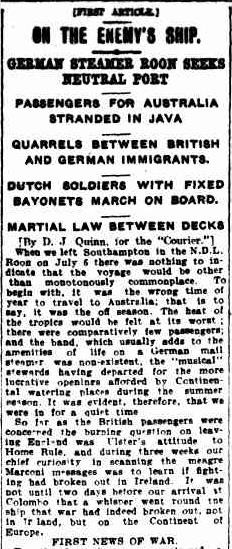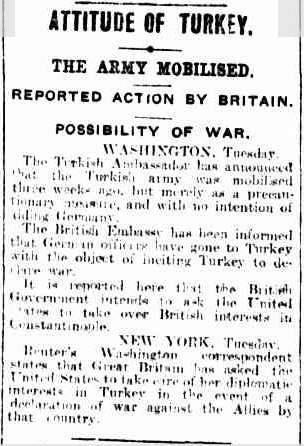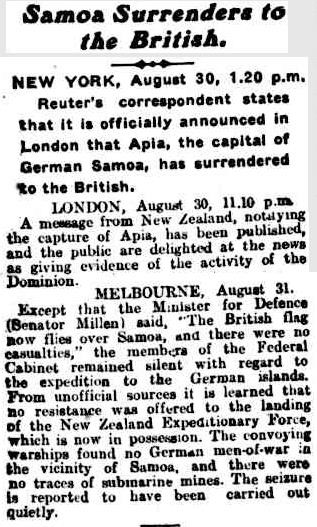One occurrence which received considerable press in early September 1914 was the dramatic voyage of the German Norddeutscher-Lloyd mail steamer vessel,'Roon'. At sea and bound for Australia, the steamer arrived in Colombo on the 30 July and attracted the attention British ships also at anchor in Colombo Harbour, including the cruiser HMS Swiftsure. Departing Colombo 31 July, the Roon set course for Fremantle, Western Australia, but two days later altered course and at full speed sailed for the neutral port of Tjilatjap on the southern coast of Java, most likely to avoid pursuit by HMS Swiftsure.

Tensions arose between 3rd class German and British (including Australian and New Zealand) passengers, and deteriorated into physical violence as the Roon approached the coast of Java. The captain prohibited the singing of national songs, and when the Roon docked at Tjilatjap on 8 August, Dutch Marines boarded to maintain order. Passengers' fears were confirmed on arrival, as the agents of the Norddeutscher-Lloyd in Batavia refused any further financial assistance or to refund the balance of fares so that passengers could continue to Australia. British subjects all left the ship, and most made their way via train to Samarang and onto another ship to Australia. Non-British passengers were largely stranded. The Roon remained quarantined in Batavia until surrendered to Britain in 1919.

Turkey's intentions were questioned as the Turkish Ambassador announced that the Turkish army had been mobilised three weeks prior, but with no intention of invading Germany. The British Embassy was informed that German officers had gone to Turkey with the object of inciting Turkey to declare war. It was reported that the British Government intended to ask the United States to take over British interests in Constantinople, and that the US should tend to its diplomatic interests in Turkey in the event of a Turkish declaration of was against the Allies.
On a more optimistic note, news reached Australia that Apia, the capital of German Samoa had surrendered to the British, with no casualties and no resistance to the New Zealand Expeditionary Force.

Each week we will be sharing news stories from the week 100 years ago, and we invite you to add your thoughts and comments.
Want to join in and find and correct newspaper articles from 1914 and 1915? Here’s more information about how to get started text correcting newspaper articles on Trove as a Pitch In! digital volunteer.
If you find something you’d like to share we’d love to hear from you at discovery@slq.qld.gov.au
Comments
Your email address will not be published.
We welcome relevant, respectful comments.